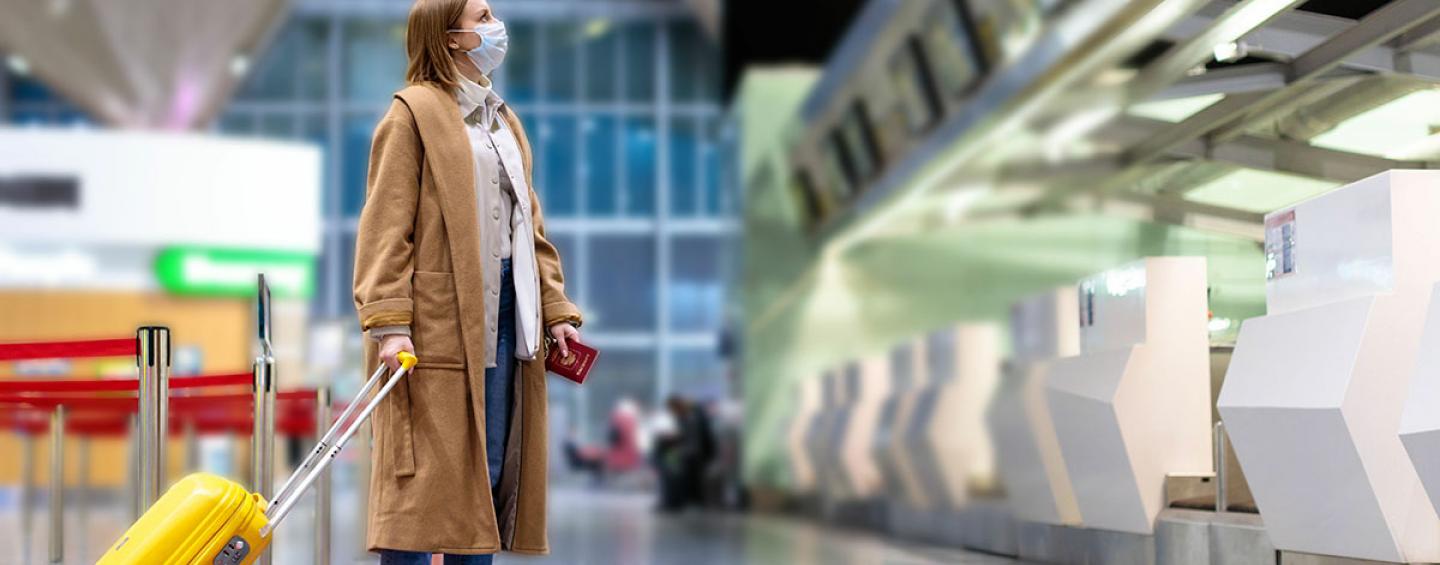
Travel advice – post summer update
As summer begins to wind-down and vacation-goers return home, some unfortunate travellers might be faced with a home quarantine order they did not expect. Travel restrictions have changed since the beginning of summer and it is time to take stock of the latest measures in the Netherlands. Below you will find the latest advice on travel, entry ban, and self-quarantine (upon return from travel), but do note that the situation can change at short notice. Travel wisely and inform yourself with the national travel advisory (in Dutch).
Countries where non-essential travel is not recommended
If you do go to the following destinations, you will be required to self-quarantine for 10 days upon your return to the Netherlands:
|
|
Non-essential travel to countries outside of the EU, the Schengen area and the United Kingdom is also not recommended, except for: Australia, Canada, Georgia, Japan, New Zealand, Rwanda, South Korea, Thailand, Tunisia, Uruguay and China.
More information on self-quarantine on the official government.nl site.
Countries that require travellers from the Netherlands to self-quarantine
Due to the increase in coronavirus infections in the Netherlands, some countries are imposing restrictive measures on travellers embarking from the Netherlands. As such, the travel advice for these countries has been adjusted from yellow to orange. They are:
Read more about the Explanation of colour codes for travel advice.
Exceptions on entry ban
Entry restriction has been in force in the Netherlands to prevent the spread of the coronavirus. This means that persons from third countries (i.e. countries outside of the EU, Schengen Member States and the United Kingdom) will not be admitted if the travel is not necessary. However, in view of the length of the travel ban and its effect on the economy and society, the government has made more exceptions (under strict conditions) as follows:
- From 14 September, top athletes.
- From 21 September, travellers who make an important contribution to the business community, including small and medium-sized businesses.
These exceptions are in addition to the exemptions that are already in effect. The government is also looking into lifting the entry ban for highly qualified professionals from the cultural and creative sectors, journalists, and researchers. The decision will be announced once the framework has been determined.
Read more about the conditions on the exceptions to the entry ban (in Dutch).
Self-quarantine in the Netherlands
Travellers returning from countries in the orange zones will be required to self-quarantine for 10 days at home or in a temporary accommodation. This quarantine is mandatory regardless of symptoms and test results (Please refer to this page for the list of countries in the orange zone). However, exemptions apply to the following, unless they experience coronavirus symptoms:
- Transit passengers who are travelling via the Netherlands and do not leave the airport’s international transit zone
- Seafarers with a seaman’s record book (apart from those on commercial yachts and pleasure craft)
- People with compelling reasons to visit their family in the Netherlands. This is only possible in exceptional cases, such as visiting a terminally ill family member or attending a funeral. This applies to first or second degree family members only. Partners and children are first-degree family members, and grandchildren are second-degree.
- People in certain professions providing essential services, and people travelling for work, (on condition that it is agreed with their employers that the purpose for travel is necessary). These professions include:
- healthcare professionals (including medical researchers and elderly care workers)
- cross-border commuters
- transport workers
- diplomats
- staff and invitees of international organisations
- members of the armed forces
- humanitarian aid workers
- civil protection personnel
Read more about Self-quarantine upon arrival in the Netherlands, and When you don't have to self-quarantine.
More exceptions to the self-quarantine rule
The government has decided to exempt certain professions from self-quarantine, instead, allowing them to leave home for specific purposes. For example, a top athlete is allowed to travel to play sports and a frontier worker to work, but must also adhere to the general rules of self-quarantine if they come from a risk area. These professions include:
- government and/or civil servants for necessary business trips
- athlete for participation in top sports
- businessperson for necessary trips that demonstrably contribute to the importance of the Dutch economy and society
- journalist
- students for studying abroad (border students)
- researcher or professional for cultural activities
Read more about the exceptions on self-quarantine (in Dutch).
You can also get answers to FAQs about travel restrictions on The Netherlands and you site.